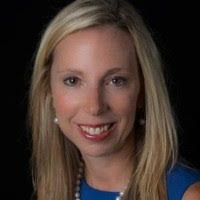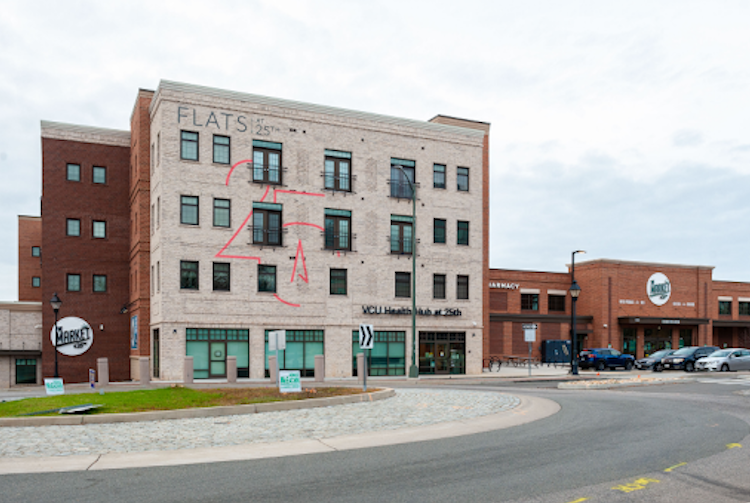Medical-legal partnerships: How legal services can improve your health
Custody battles, evictions and other legal matters can take a toll. We can help.
November 23, 2020
Good legal services are hard to access when money is tight. To help, VCU Health has established a medical-legal partnership (MLP) that offers free legal advice and representation for eligible patients and families in the Richmond area.
The MLP model isn't new, though. In fact, it was developed by a pediatrician at Boston Medical Center in the 1990s.
 “As chief of pediatrics, he was tired of treating children with asthma and sending them home to moldy apartments. He was tired of seeing anemic toddlers and telling their parents to buy more and better food when he knew they couldn't afford to. He grew so frustrated by this that he did something that was considered pretty radical at the time. He hired his own team of lawyers,” says Allison Held, associate general counsel and director for the MLP at VCU Health, in a podcast.
“As chief of pediatrics, he was tired of treating children with asthma and sending them home to moldy apartments. He was tired of seeing anemic toddlers and telling their parents to buy more and better food when he knew they couldn't afford to. He grew so frustrated by this that he did something that was considered pretty radical at the time. He hired his own team of lawyers,” says Allison Held, associate general counsel and director for the MLP at VCU Health, in a podcast.
The Boston clinic started “Walk-in Mondays” so lawyers could fight legal and administrative battles to improve children's health in ways that pills and surgery couldn't. What resulted was a movement that spread across the country. Now, more than 400 MLPs exist in 48 states. Most are at children's hospitals or academic medical centers and hospitals that serve large, low-income populations.
Lawyers become part of the health care team
MLPs, in brief, are programs that add lawyers to the health care team in order to address social issues rooted in legal problems. The problems generally affect low income and underserved patients and families.
“Our lawyers become part of the health care teams and clinics we serve,” Held states. “Our physicians, our nurses, our social workers refer patients to a lawyer the same way they would refer a patient to any subspecialty, like psychology or cardiology.”
Lawyers intervene to address social causes of health concerns, such as unlawful evictions, public benefit denials, employment discrimination, family law and immigration status. They also help children and families advocate for themselves in school and at work.
“We know that we're improving people's lives every day, but we also recognize that circumstances outside our clinic walls, such as food, housing or a child not getting the support she needs at school can have a profound effect on patient health,” Held states. “Adding lawyers to our health care teams makes sense. We see the difference we can make in our patients' lives and in our community by providing this free, compassionate service to our patients and families.”
The service is provided through community partners such as Central Virginia Legal Aid Society, CancerLINC, McGuire Woods and Dominion Energy. MLP also relies on pro bono attorneys, who provide their services for free.
What kind of assistance is available?
The most common example is substandard housing — for example, a child with asthma whose home has mold, cockroaches or a leaky roof. These conditions can make asthma and other breathing problems even worse. In these cases, our lawyers can intervene and require the landlord to make repairs.
“We often see in these cases that health issues improve once we've been able to address the legal problem,” Held notes.
Employment is another common problem, particularly with cancer patients. “Someone may need to take time off from a job or reduce their hours,” Held says. “Sometimes, we see patients lose their jobs as a result of their diagnosis or their treatment. We advise patients on their rights, represent them in the case of a wrongful termination, and hopefully help them keep their jobs — and thus their income and benefits — so they can adhere to treatment plans and focus on getting well.”
A relatively new and growing area for the VCU legal team is education — the No. 1 predictor of long-term health and life expectancy. Keeping kids in school and providing them with all the support they need to be successful in both the classroom and life in general is critical.
“Our providers at the Children's Hospital refer cases to us when they see kids who are having trouble in school, who are being bullied, who may have an individualized education plan (IEP), or who may need an IEP in order to receive special education and any related support services at school. We help families communicate with teachers and school administrators to understand their rights. This has become even more important due to COVID-19 and virtual learning, since it can be more difficult to provide these services in this new learning environment,” Held explains.
Additional services include:
• Estate planning (wills, powers of attorney, advance medical directives)
• Public benefit appeals (Medicaid, SNAP)
• Consumer issues (predatory lending, bankruptcy)
• Family law (domestic violence, child custody, guardianship)
• Immigration status, when affecting your ability to access health care
How to access services
The best way to access MLP services is to talk to your VCU Health doctor, nurse or social worker. They will refer you to our MLP if you meet the criteria. Once the referral comes through, a team member will reach out to you.
For issues affecting cancer patients, please visit Massey Cancer Center. For issues affecting children, see Children's Hospital of Richmond. For more information about the program, you can email mlp@vcuhealth.org or call (804) 517-9110.
To listen to an in-depth conversation on this topic with Allison Held, please listen to our podcast.




